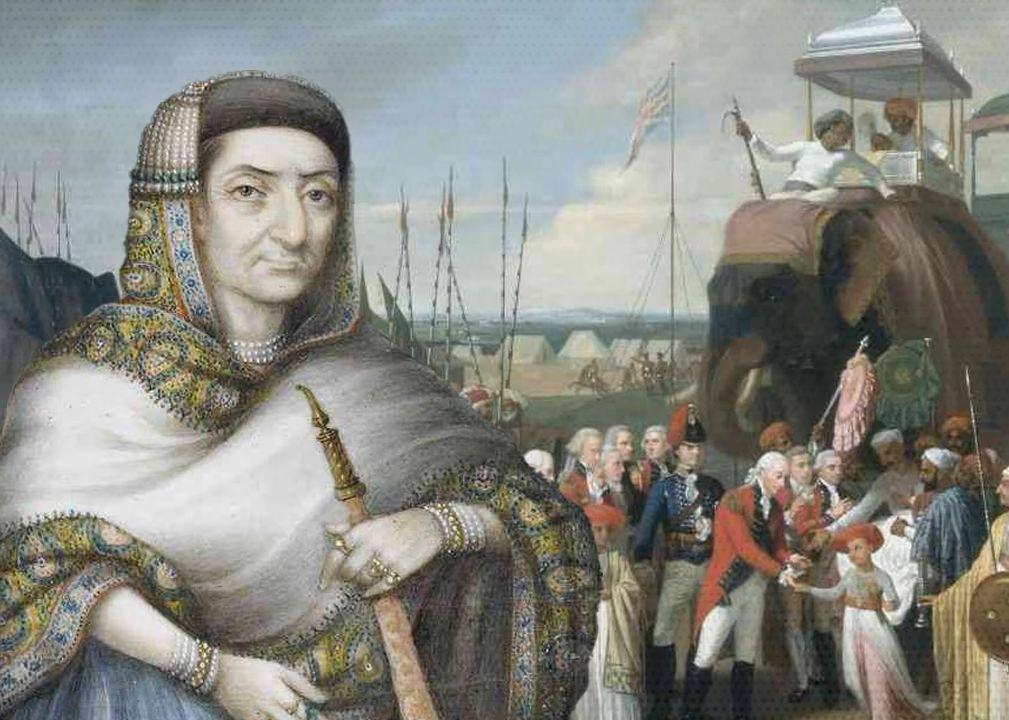
Women Entrepreneurs in Indian History: Begum Samru & Jibhabu
India, a country with a rich history and culture, has been home to many remarkable women who have made significant contributions to various fields, including business and entrepreneurship. Among these women, Begum Samru and Jibhabu stand out for their exceptional leadership skills, financial expertise, and strategic thinking. Despite facing numerous challenges and societal norms, they defied convention and left lasting legacies in Indian history.
Begum Samru: The Diplomatic Ruler
Born as Annabella Lais de Roze in 1752, Begum Samru was an Anglo-Indian woman who rose to become the ruler of a 621-square km estate in Sardhana, Uttar Pradesh. Her journey to the throne was marked by diplomacy, strategic alliances, and financial acumen. Samru’s early life was marked by tragedy, as she lost her parents at a young age and was forced to work as a child servant. However, she soon caught the eye of the British East India Company, who recognized her intelligence and business skills.
Samru’s relationship with the British led to her marriage to a Muslim noble, Ghulam Mohammed Khan, who was a loyalist to the Mughal Empire. After his death, she inherited his estate and used her diplomatic skills to maintain good relations with the British, while also protecting her own interests. Her ability to navigate the complex web of politics and alliances earned her the respect of both the British and the Indians, who often referred to her as “Begum Samru,” a title of respect and admiration.
Samru’s financial expertise was remarkable, considering the time period in which she lived. She managed her estate efficiently, collecting revenue and making smart investments. Her business acumen was so impressive that the British East India Company often sought her advice on matters related to trade and commerce.
Jibhabu of Gujarat: The Negotiator
Jibhabu, also known as Jibhabhai, was a remarkable woman from Gujarat who lived in the 18th and 19th centuries. Born into a family of merchants, she was destined to take over her family’s land revenue business. However, her family’s fortunes were threatened when the East India Company began to dominate the region’s economy.
Jibhabu’s response was to negotiate with the East India Company, using her exceptional business skills to restore her family’s land revenue business. She was able to secure favorable terms, ensuring that her family’s business continued to thrive in the face of competition from the British.
Jibhabu’s negotiation skills were impressive, considering the time period in which she lived. She was able to navigate the complex web of British and Indian politics, using her business acumen to secure favorable deals. Her ability to work with the British, while also protecting her family’s interests, was remarkable and is a testament to her exceptional leadership skills.
Legacy of Begum Samru and Jibhabu
The legacies of Begum Samru and Jibhabu are a testament to the power of women entrepreneurs in Indian history. Despite facing numerous challenges and societal norms, they defied convention and made significant contributions to their respective fields.
Begum Samru’s diplomatic skills and financial expertise helped her maintain good relations with the British, while also protecting her own interests. Her ability to navigate the complex web of politics and alliances earned her the respect of both the British and the Indians.
Jibhabu’s negotiation skills and business acumen helped her restore her family’s land revenue business, ensuring that their fortunes continued to thrive in the face of competition from the British. Her ability to work with the British, while also protecting her family’s interests, was remarkable and is a testament to her exceptional leadership skills.
The stories of Begum Samru and Jibhabu serve as an inspiration to women entrepreneurs today. They demonstrate the importance of financial expertise, strategic thinking, and leadership skills in overcoming challenges and achieving success. Their legacies are a testament to the power of women in business and entrepreneurship, and serve as a reminder of the significant contributions that women have made to Indian history.
Conclusion
Begum Samru and Jibhabu are two remarkable women who defied societal norms and made significant contributions to Indian history. Their stories are a testament to the power of women entrepreneurs and serve as an inspiration to women today. From Begum Samru’s diplomatic skills and financial expertise to Jibhabu’s negotiation skills and business acumen, these women demonstrate the importance of leadership skills and strategic thinking in achieving success.
Their legacies are a reminder of the significant contributions that women have made to Indian history, and serve as an inspiration to women entrepreneurs today. As we celebrate their achievements, we are reminded of the importance of supporting and empowering women in business and entrepreneurship, and of the significant role that they can play in shaping the future of India.
Source:
https://ascendants.in/business-stories/pioneering-women-entrepreneurs-history/






